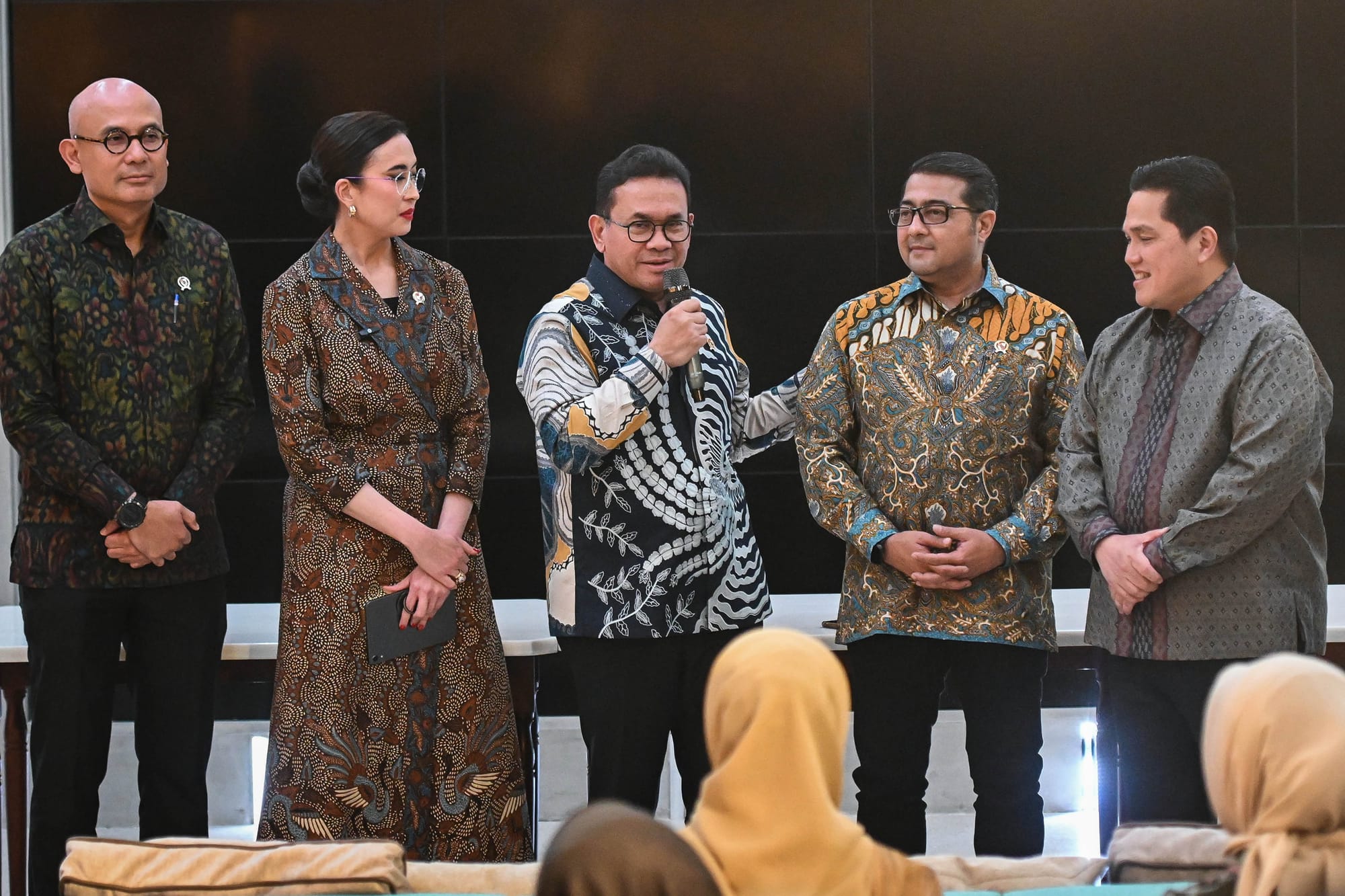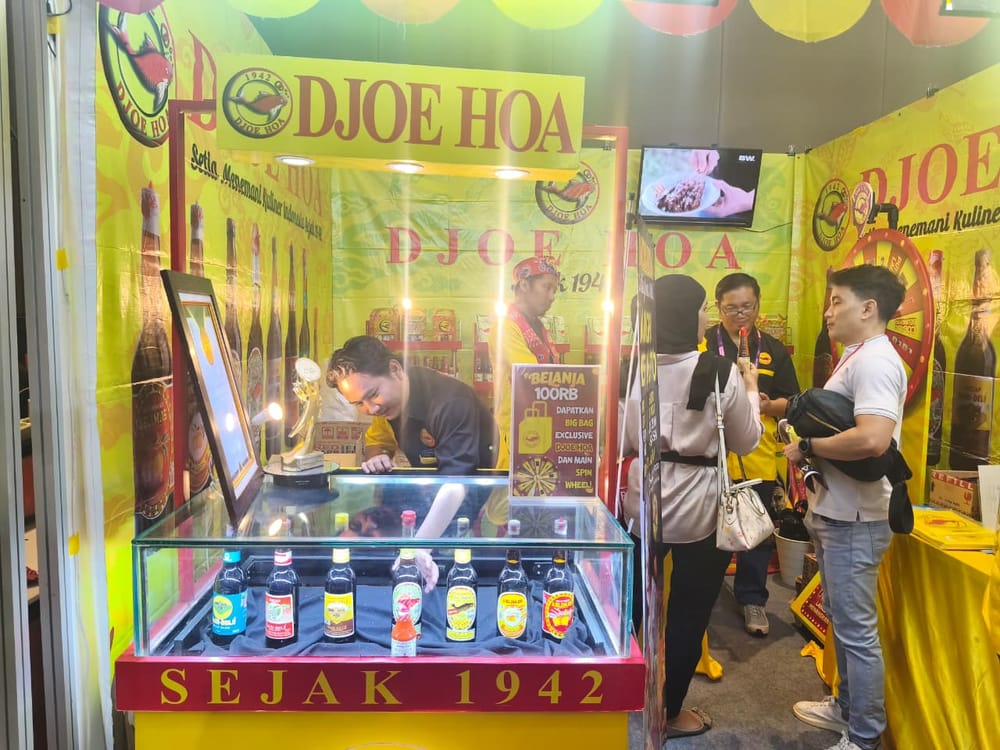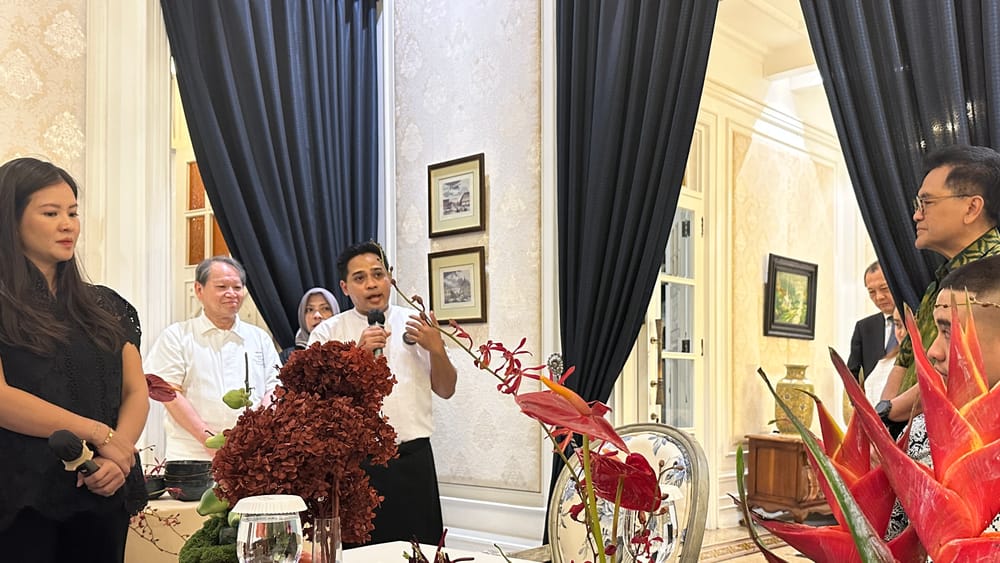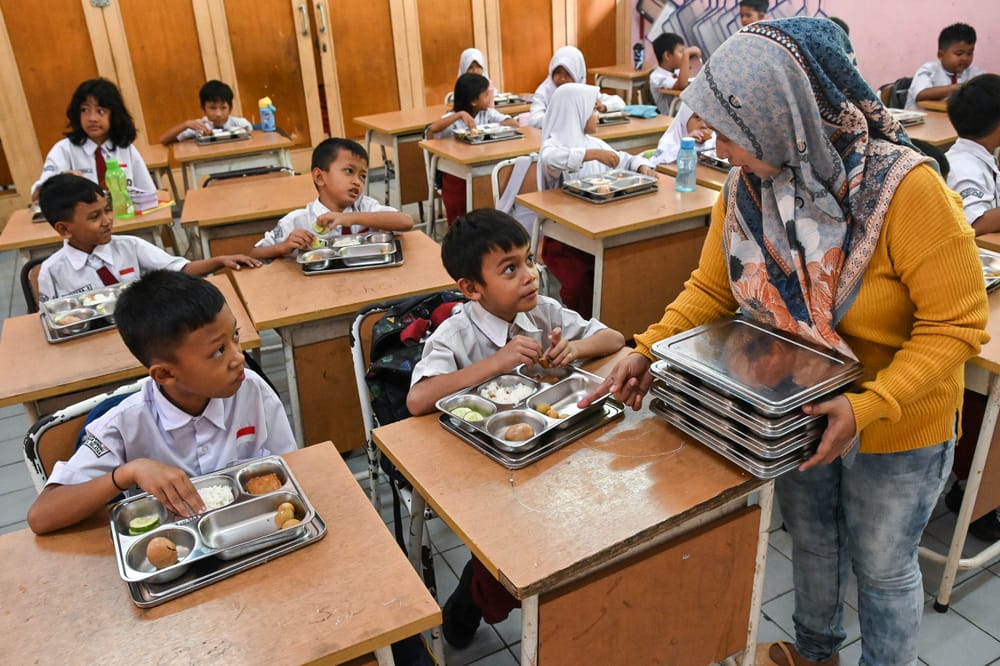Admittedly, the branding of Indonesian cuisine at the international level is far behind neighboring countries such as Thailand and Vietnam. Recognizing this, six ministries recently agreed to work together to revive the Indonesian spice and seasoning export program that took place several years ago.
The Indonesian diaspora and culinary business actors have given a positive response. They are optimistic that this collaboration will strengthen the image of Indonesian cuisine in the eyes of the world, while also increasing spice exports in the coming years.
On Thursday (08/28/2025), the Ministry of Trade in collaboration with the Ministry of Tourism, the Ministry of Creative Economy, the Ministry of UMKM, the Ministry of Foreign Affairs, and the Ministry of State-Owned Enterprises, launched the "S'RASA: Rasa Rempah Indonesia" program at the Sarinah shopping center, Jakarta.
S'RASA is an Indonesian culinary promotion program for foreign markets, presenting a variety of typical Indonesian culinary delights along with their identity, stories, and cultural heritage in Indonesian restaurants in various countries. S'RASA is a continuation of the Indonesia Spice Up The World program which ended in 2024. In the pilot project phase, S'RASA will involve Indonesian restaurants located in five cities around the world, namely Tokyo, Japan; Sydney, Australia; Amsterdam, Netherlands; London, England; and New York, United States.
Present at the launch event were Minister of Trade Budi Santoso, Minister of Tourism Widianti Putri Wardana, Minister of Creative Economy Teuku Riefky Harsya, Minister of State-Owned Enterprises Erick Thohir, and Deputy Minister of Foreign Affairs Arrmanatha Nasir, Deputy for Medium Enterprises at the Ministry of Cooperatives and UMKM (UMKM) Bagus Rachman, along with echelon one officials from each ministry who signed the cooperation document.

According to Budi Santoso, the signing of the S'RASA memorandum of understanding (MoU) is a manifestation of the unification of cross-ministerial commitments to make Indonesian restaurants abroad not only places to sell food, but also the spearhead of Indonesian gastro diplomacy. The cooperation of six ministries to encourage the export of spices, he said, is a concrete form of that support.
Budi mentioned that throughout January—June 2025, there was a surge in exports of Indonesian coffee, tea and spice commodities, reaching US$ 1.630 billion, growing 86.5% compared to the same period last year.
"We want spice exports to support our restaurants and food branding. So far, we have exported spices, but they are consumed by other people. With S'RASA running for the next 4–5 years, we will strengthen our own culinary image in the eyes of the world," explained Budi in a question and answer session with the media.
Spices empower
In agreement with Budi Santoso, Arrmanatha Nasir appreciated the synergistic efforts of the six ministries who are trying to make Indonesian cuisine global. The Deputy Minister of Foreign Affairs, who once served as the number one person at the Permanent Representative of the Republic of Indonesia to the United Nations, also underlined Indonesian restaurants and stalls abroad as valuable assets.
Arrmanatha mentioned that the Ministry of Foreign Affairs' Gastronomy Dashboard platform recorded 1,221 Indonesian restaurants abroad. On average, they serve three superior menus. Namely, satay, nasi goreng, and gado-gado.
"Through S'RASA, we are trying to make Indonesian cuisine have the same taste standard for every dish served to their customers," said Arrmanatha.
In the S'RASA program, UMKM are expected to be one of the pillars that play an optimal role. According to Bagus Rachman from the Ministry of UMKM, this program will empower around 12,000 umkm spice entrepreneurs to become suppliers of Indonesian spices and seasonings to foreign countries.
Contacted separately, Belitung white pepper export entrepreneur Vivi Widyana assessed that Indonesian spice exports have very promising prospects. "Indonesia has one of the best quality peppers in the world. Belitung white pepper, also known as Muntok white pepper, is very popular abroad," said Vivi when contacted by SUAR, Thursday (28/08).
The need for spice consumption post-pandemic, in Vivi's assessment, is one of the supports for the growth of Indonesian spice exports which continues to experience rapid development to this day.
"After the pandemic, there was a change in consumer behavior in Asia and Europe who are increasingly aware of the importance of natural ingredients in food, including high-quality spices. One of them is Indonesian spices," concluded Vivi.
Traces of flavor in foreign lands
The experience of presenting Indonesian flavors in foreign lands is a story like no other. Tisa, a diaspora who works at an Indonesian food stall in London, stated that the Indonesian community abroad is the gateway to popularizing Indonesian cuisine to British people. In addition to working at the stall, she also opened a simple catering business that serves Indonesian dishes to order.
"Most of the buyers are Indonesian students studying here. They know from the Indonesian student community communication group, as well as Indonesian citizens who live around the house. Because it's small-scale, I only sell to the community, a cure for longing for Indonesian food for friends here," said Tisa when contacted by SUAR from Jakarta, Friday (08/29/2025).
In running an Indonesian culinary business in King Charles' country, Tisa admits that it is not too difficult to obtain Indonesian spices. Many oriental shops in London also sell them in packaged and ready-to-cook forms. "The only thing I have never found so far is bay leaves. Other than that, everything is available," she said.
From the Indonesian food stall that she co-manages, Tisa sees the growing attention of local people to Indonesian dishes. "They often praise the taste of the food," Tisa said with a chuckle.
Nevertheless, she still pays attention to the transparency of food content information, including listing allergenic ingredients for non-Indonesian consumers.
The trick of introducing and bringing Indonesian flavors closer to foreign palates, as Tisa does, is one of the achievements of the Indonesian diaspora that is not easy. It's not just about gaining customer trust, but also choosing representative dishes to represent Indonesia.
Research by Helga Yohana Simatupang and colleagues from UPN "Veteran" East Java, 2025, reveals that one of the biggest challenges of Indonesian gastro diplomacy is the lack of verified written documentation of culinary wealth to represent regions in Indonesia.
One of the biggest challenges of Indonesian gastro diplomacy is the lack of verified written documentation of culinary wealth to represent regions in Indonesia.
Not only that, the diversity of types also requires Indonesian culinary businesses abroad to maintain consistency of taste and quality, access to authentic and fresh raw materials and spices, and promote types of dishes from various regions in a balanced way in the same appealing menu catalog.
The research concludes that the key to overcoming these gastro diplomacy challenges is to create an integrated ecosystem that connects government efforts on the one hand and the diaspora's interaction experiences with local communities on the other.
Not only serving dishes, Indonesian stalls and restaurants abroad can also display music, crafts, and traditional clothing as ornaments. Thus, it is able to create an ambience and a holistic dining experience, as well as introduce Indonesian cuisine as part of a broader cultural product.






